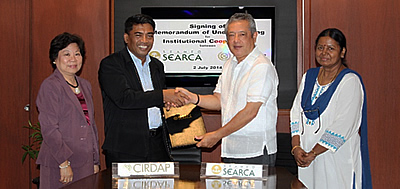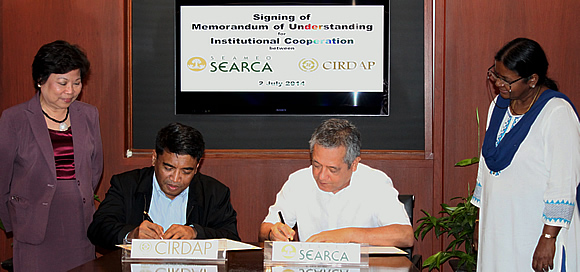 The three-year agreement was signed at SEARCA during the visit of Dr. Effendi and Dr. Rajendran on 2 July 2014.
The three-year agreement was signed at SEARCA during the visit of Dr. Effendi and Dr. Rajendran on 2 July 2014.
CIRDAP is a regional intergovernmental and autonomous organization established in 1979 on the initiative of Asia-Pacific countries and the Food and Agriculture Organization (FAO) of the United Nations with support from other UN bodies and donors.
From six member countries initially, there are now 15 CIRDAP member countries, namely: Afghanistan, Bangladesh, Fiji, India, Indonesia, Iran, Lao PDR, Malaysia, Myanmar, Nepal, Pakistan, the Philippines, Sri Lanka, Thailand, and Vietnam. Seven of CIRDAP’s member countries are in Southeast Asia, which are also served by SEARCA.
Operating through designated contact ministries and link institutions in member countries, CIRDAP plays a supporting and reinforcing role in enhancing the effectiveness of integrated rural development programs in Asia and the Pacific.
SEARCA and CIRDAP have agreed to collaborate in developing joint programs, projects, and other related activities in capacity building and research. They also committed to exchange scientific materials, publications, and information.